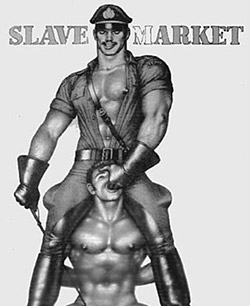Power tends to corrupt, and absolute power corrupts absolutely.
Lord John Dalberg-Acton
A question those of us in D/s relationships would be right to ask ourselves more often than others is: Does power corrupt?
“Power corrupts” is a common enough saying, and usually it is pointing to behaviour that violates norms or values. In politics or business it is often legal, such as falsifying documents or misusing funds, but in D/s (relationships or the community) it is more likely to be cultural or moral, such as acting inappropriately or offensively.
And, “corrupts” signals a change (for the worse) in the person. It’s a correlation of an increasing level of power and an increasing level of corruption. Which means how they are correlated is a valid question. Is it the power that corrupts? Or, is it that corruptible people are attracted to power?
It’s not surprising that studies show that bullying and sexual harassment in the workplace are committed mostly by persons in positions of power. Powerful people are more likely to get away with misbehaviour.
But, they must have been shitty people all along, you might think. There has been a lot of studies and laboratory research to test this.
In experiments where participants are randomly put into a position that has either high power or low power (so the results can be explained by power rather than personality), it’s been shown that:
- participants in high-power positions are more likely to engage in behaviour such as cheating
- they also rate the moral severity of that behaviour in themselves much lower than they do in other people
It sounds a bit hypocritical, so given that these are ordinary people, don’t they feel guilty? Not really:
- a sense of entitlement may accompany self-righteous judgements, and the more participants believed that their power was legitimate the more likely they were to make self-righteous judgements
- other studies show that those in power are less likely to be empathic or good at understanding other people’s perspectives, so if they do not really understand the distress they cause to others then they have no thoughts that would make them feel guilty
 So, the conclusion from the research is that power can and does corrupt, and it can happen to normally decent people. But, does that mean that bad people do more bad things and good people start doing bad things too?
So, the conclusion from the research is that power can and does corrupt, and it can happen to normally decent people. But, does that mean that bad people do more bad things and good people start doing bad things too?
Research by Dr Katherine DeCelles, published in 2012 in the Journal of Applied Psychology concluded that power heightens pre-existing moral tendencies. Participants who identified moral values such as fairness and compassion as being important to their self-identity were less likely to break rules or misbehave and more likely to engage in pro-social behaviour when they had power.
Power doesn’t necessarily corrupt – it can be used to do either good or bad, and it can bring out the best (as well as the worst) in individuals. It’s the person, not the power.
So, the question is not whether power corrupts. The research is clear that it certainly can, and unfortunately often does. But, it’s not always the case that it does.
Power can be negative and destructive, but it can also be positive and uplifting. In our D/s relationships and in our kink communities we need to guard against the perils of power but not lose sight of the goodness it can galvanise.
Power matters, so it matters who we give power to.
